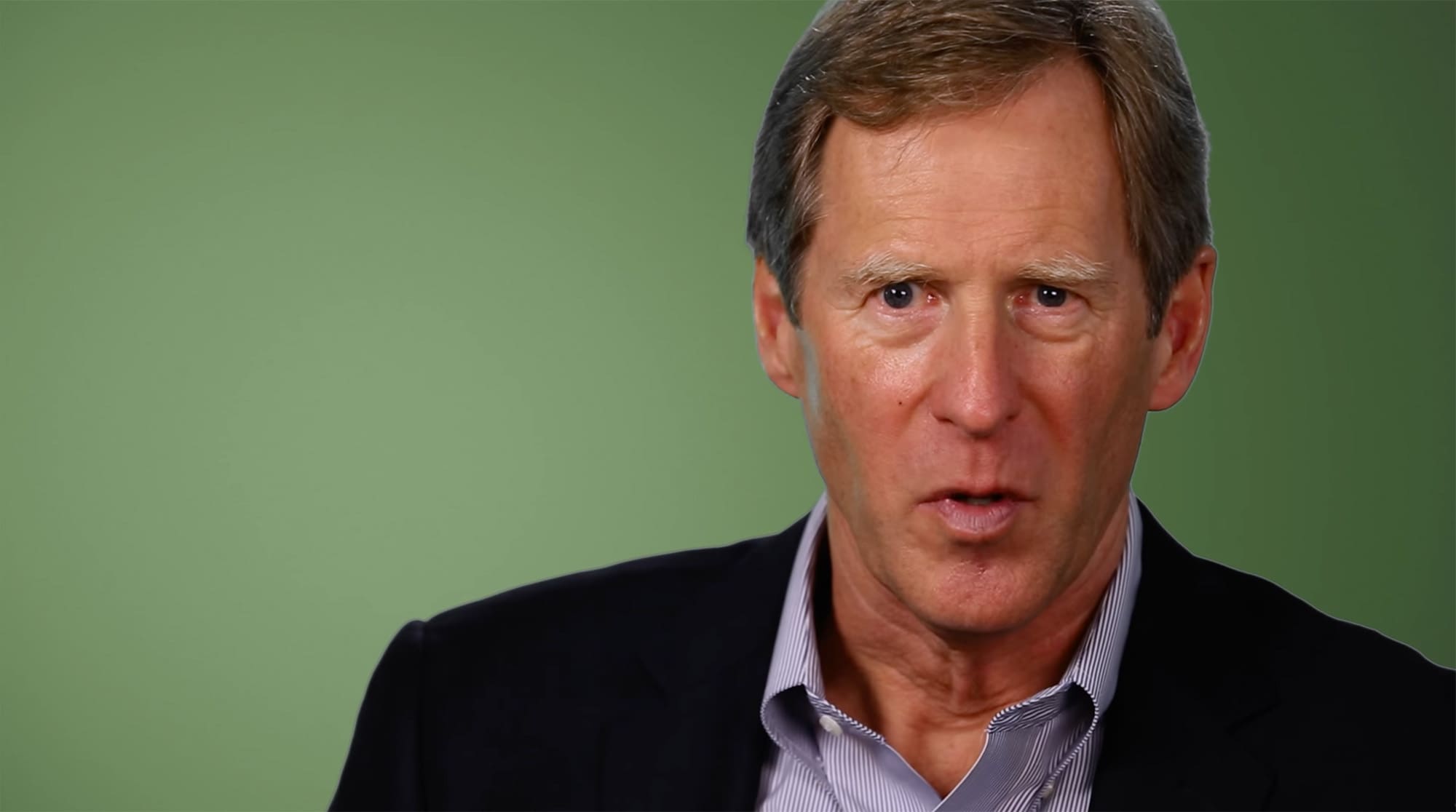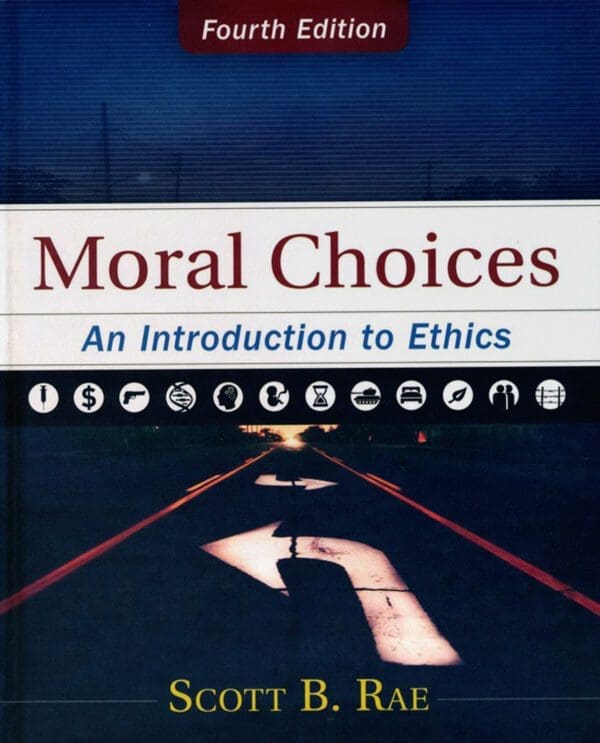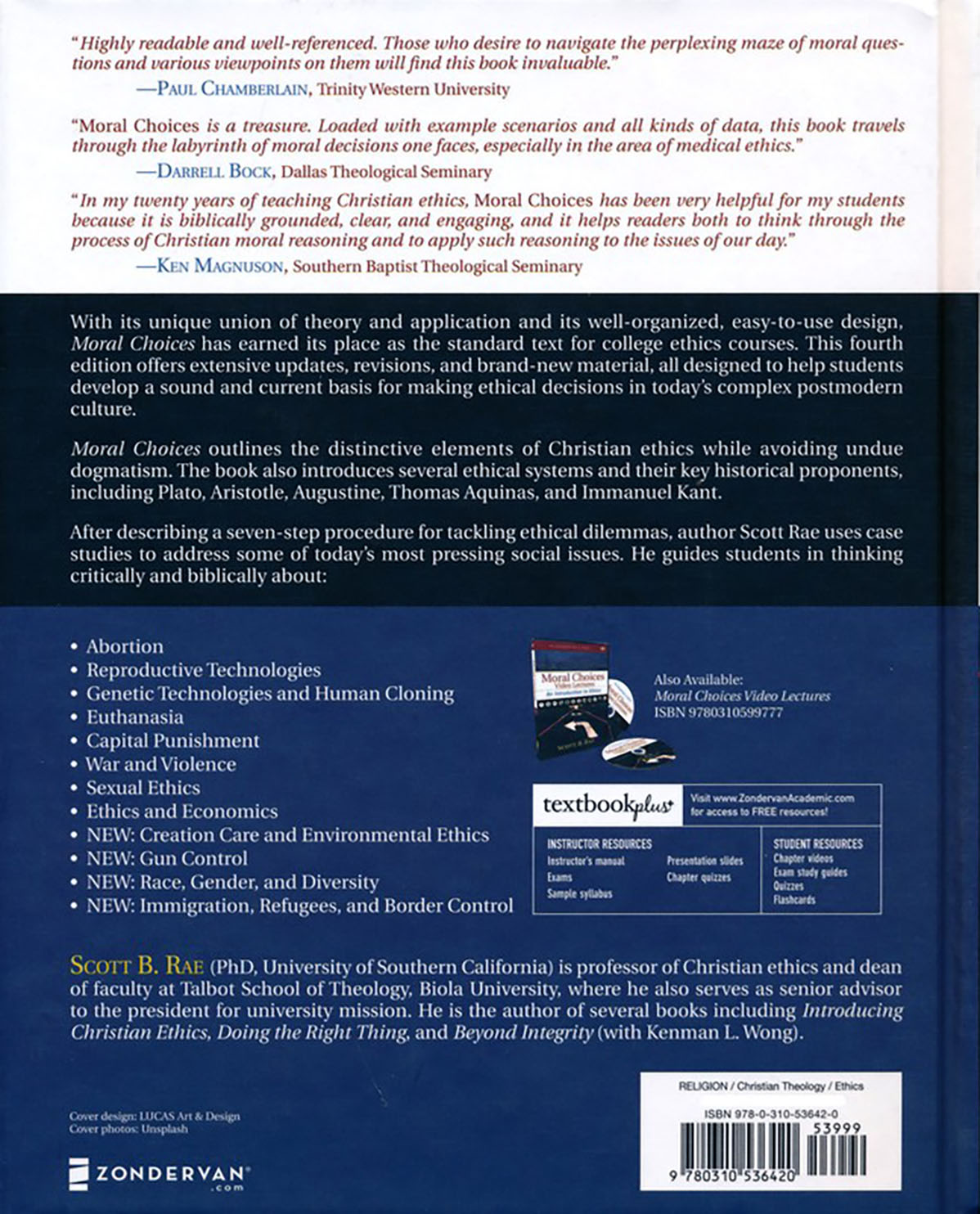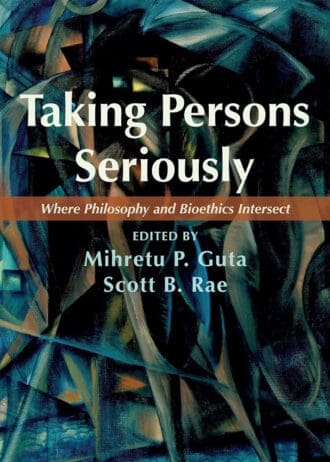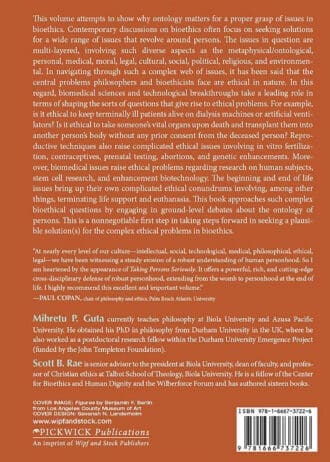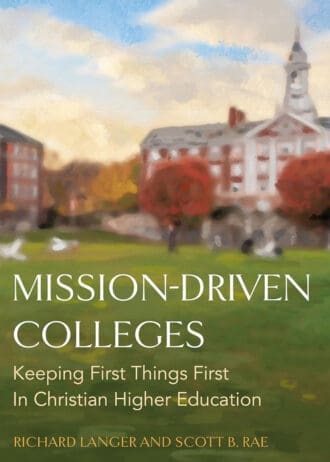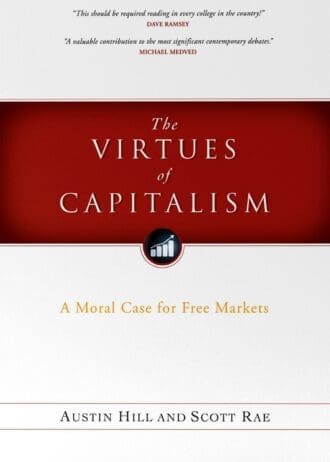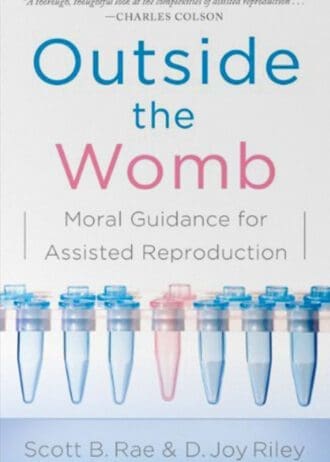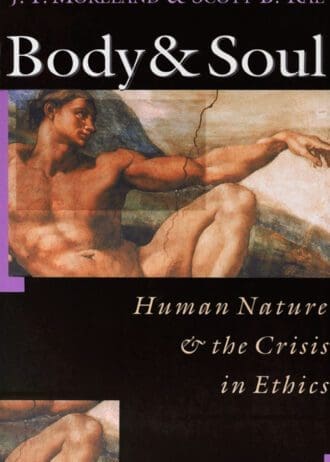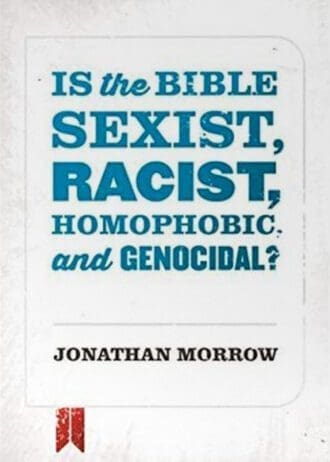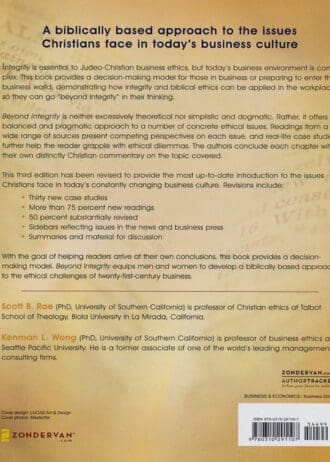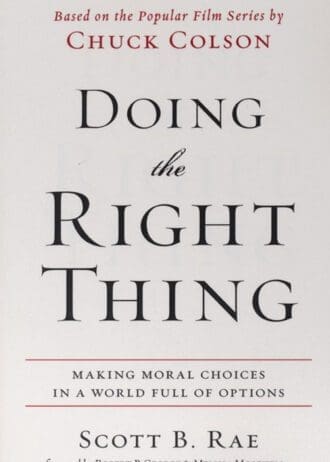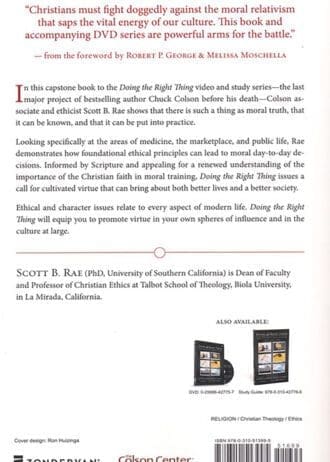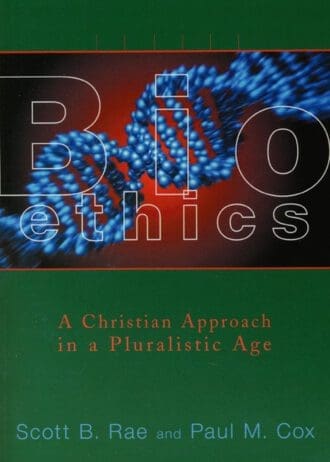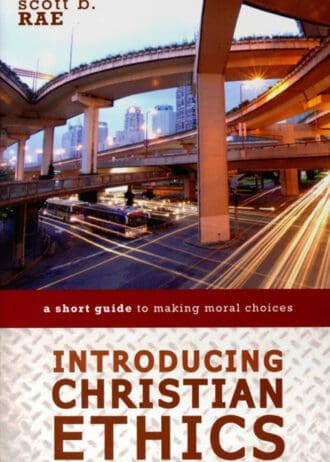With its unique union of theory and application and its well-organized, easy-to-use design, Moral Choices has earned its place as the standard text for college ethics courses. This fourth edition offers extensive updates, revisions, and three brand new chapters all designed to help students develop a sound and current basis for making ethical decisions in today’s complex postmodern culture.
Moral Choices outlines the distinctive elements of Christian ethics while avoiding undue dogmatism. The book also introduces other ethical systems and their key historical proponents, including Plato, Aristotle, Augustine, Thomas Aquinas, and Immanuel Kant.
After describing a seven-step procedure for tackling ethical dilemmas, author Scott Rae uses case studies to address some of today’s most pressing social issues. He guides students in thinking critically and biblically about issues, including: abortion, reproductive technologies, euthanasia, capital punishment, sexual ethics, the morality of war, genetic technologies and human cloning, ethics and economics, creation care, animal rights, gun-control, race, gender and diversity, immigration, refugees, and border control.
